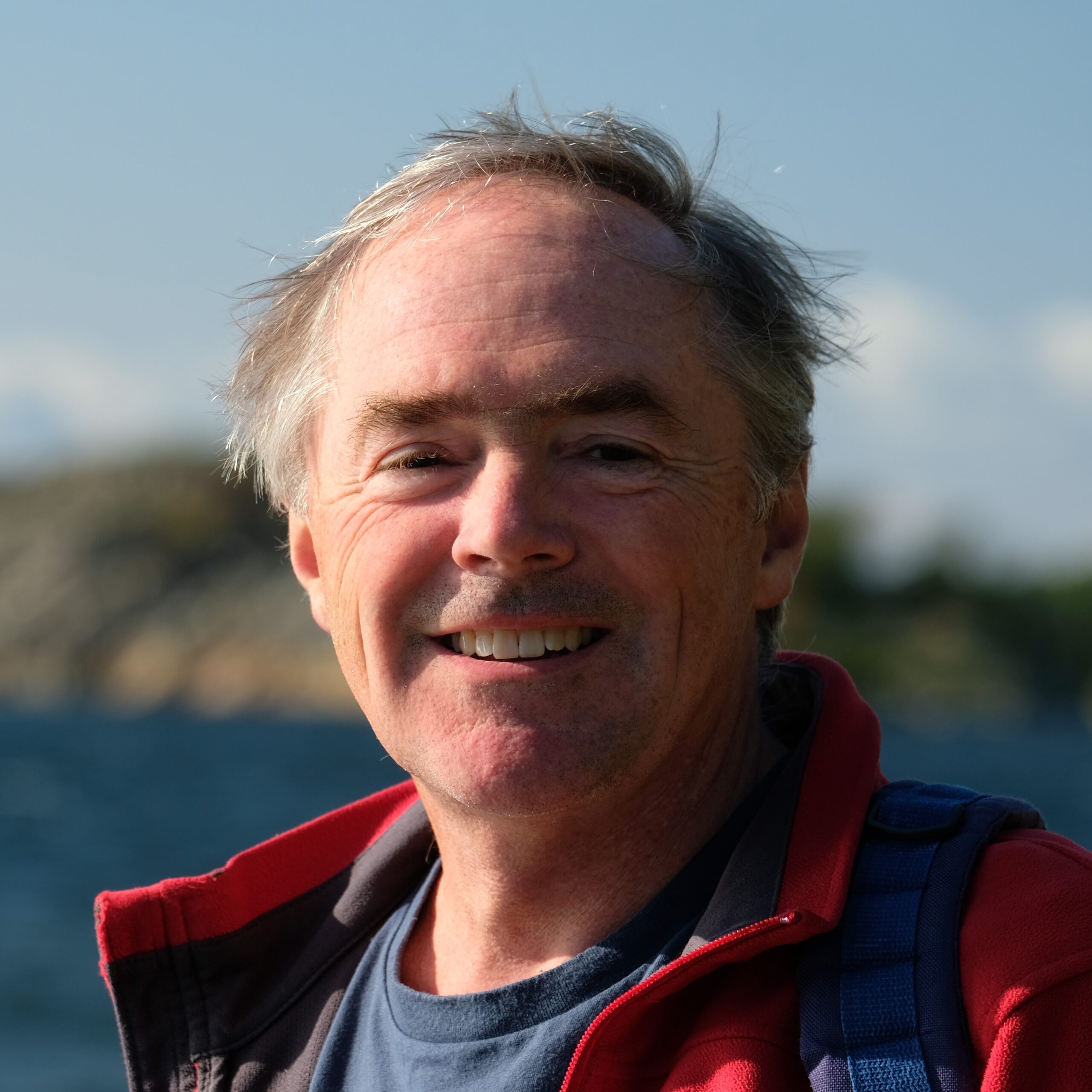URI professor of oceanography makes a splash. PHOTO CREDIT: Jeremy Collie
Jeremy Collie, University of Rhode Island professor of Oceanography, has worked all around the world researching the impacts of bottom trawling, overfishing and healthy seabeds.
Collie, who has been teaching at URI for 28 years, became interested in the ocean at a young age while growing up in Manitoba, a landlocked Canadian province north of Minnesota.
Much of Collie’s research focuses on exploited fish, which are fish that the fisherman don’t want to catch, such as fish that are caught in bottom trawling. Collie uses population dynamics, the study of how populations of fisheries change over time, to help solve problems. Some of these problems include harm caused to seabeds due to the net used in bottom trawling and the effects of overfishing.
Collie began his research on George’s Bank, an area of water on the continental shelf, or the edge of North America, directly east of Cape Cod.
“In the 90s and 2000s, I was doing a study looking specifically at areas on George’s Bank that had been closed to trawling,” Collie said. “When these areas were closed, we thought this is a great opportunity to see what happens to the seafloor animals if you close an area from trawling.”
When he was conducting these experiments, Collie found that other scientists around the world were conducting similar research. This led him to take part in a meta-analysis, a method of review in which data is combined from studies asking the same question to assess the results of past studies.
Through this research, Collie and his fellow researchers concluded that sustainable fishing management leads to healthier ecosystems in sea beads. These findings were recently published in the “Proceedings of the National Academy of Science.”
Collie said that bottom trawling fishing doesn’t happen often in Narragansett, but it is prevalent in other parts of New England where bottom trawling is common.
“We have a lot of bottom trawling and scallop fishing activity and people are concerned about the potential effects of that,” he said. “This study is relevant to that.”
According to Collie, working with researchers from around the world has helped him as a professor. He said that traveling has helped him broaden his horizons in a way that would not have been possible within the URI community due to the different perspectives he gains from people of different cultures.
Many of Collie’s peers have praised this research, including Paula Bontempi, the dean of the Graduate School of Oceanography (GSO).
“He’s a fisheries guru,” she said. “He’s a coastal ecologist, he has been in that field for decades and he is one of GSO’s brightest stars.”
According to Bontempi, Collie has done a lot of work with graduate students as well.
“He has really been a facilitator of a lot of graduate students, and some of the nation’s best leaders in fisheries and oceanography,” she said.
Collie hopes that his students will leave with more knowledge about contemporary ecological issues and how those issues affect their lives. He said that he believes it is vital that students understand that science can solve ecological issues.
Collie’s next research will focus on how I’m looking at how climate change affects marine fish.





